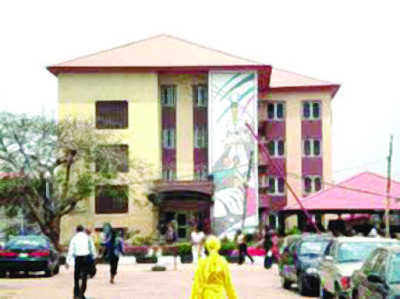The deal led to the formation of the Institute of Fertility Medicine (IFM), which has handled 74 live births through the Assisted Reproductive Technology (ART).LASUTH and TBC management fittingly rolled out the drums to celebrate the feat.
‘’It’s like staging a war against oneself, but the desire to see many couples, especially those who are financially challenged, achieve procreation, sustained the result of having 74 live births through Assisted Reproductive Technology (ART) at the Lagos University Teaching Hospital’s (LASUTH’s) Institute of Fertility Medicine (IFM) of the Department of Obstetrics and Gynaecology and the BridgeClinic.”
He said the plan was to hand over the facility to LASUTH after five years.
The objective of the deal is to provide quality fertility services to economically challenged families in Lagos and its environs.
IFM, which operates within LASUTH, is staffed by LASUTH doctors and TBC’s nurses and embryologists. This helped the LASUTH doctors to be trained by The BridgeClinic and enabled it to subsidise treatment for lower income families that needed ART, especially IVF with percent discount offered them.
According to Ajayi, the standard the BridgeClinic is known for, exists at LASUTH’s IMF and it was not easy funding such operations, “but today, we are happy that many families have babies of their own. How good you cultured in a laboratory determines success. This is the first in West Africa where a private and a public hospital collaborate on ART/IVF. My dream is to take IFM and transform it into a research institute.”
Ajayi appealed to the government to fund the LASUTH’s IMF to enable achieve its goal.
LUTH management appealed to Nigerians to support the government in achieving a cheaper cost of Assisted Reproductive Technology (ART) especially its peak -IVF.
LASUTH Chief Medical Director, Prof. Adewale Oke, represented by Dr Ayoade Adedokun, the hospital’s Clinical Services and Training Director, said: “We have been told what future lies ahead of the partnership, which is to bring down the cost further. With the help of the government and well-meaning Nigerians, we can achieve this; that is, getting the drugs at a highly subsidised rate that will bring down the cost of treatment.’’
According to the hospital’s Chairman of IFM Board, Prof. Adetokunbo Fabamwo, the cost of one ART cycle is from N400,000 to N500,000.
Fabamwo said there was the need to train more fertility experts in the hospital. He said only two persons had been trained as consultants on fertility matters in the hospital. He, however, noted that some resident doctors in the hospital’s Obstetrics and Gynaecology Department had undertaken routine trainings at the IFM.
“For now, only two consultants will carry on with the service in the institution,” he said.
The chairman said the hospital was aiming at being independent in fertility issues.
Fabamwo said: “We are only waiting for the completion of the Ayinke House, which will be the new building for the Obstetrics and Gynaecology Department before we start to operate on our own.’’
The guest speaker, Dr Tawakalitu Otun, a consultant gynaecologist, urged those with infertile cases to seek assistance.
Otun said religious beliefs hindered some women from seeking appropriate treatment,“The issue of religion is a huge challenge; when women and men are infertile, they believe it is a supernatural problem, but science has gone beyond that myth. It is better to be investigated and the cause of the problem identified and treated. Not all women will have babies through Invitro Fertility Treatment (IVF); there is also room for adoption. There are other ways of conceiving and having children,” she said.
Otun said about 50 per cent of those who visited the hospital’s gynaecology clinics presented with infertility cases.
According to her, the country still records a high rate of infertility. “The reason is that there are a lot of practices among the population that can affect fertility potential vis-a-vis the level of promiscuity within the environment. Sexually Transmitted Diseases (STDs) can be a reason.
“For the female, the cause is mostly tubal factor, which is due to infection from STDs; also, men have problems with sperm counts due to infections,” she said.
Bridge Clinic Chief Executive Officer, Dr Jide Ojo, said IVF awareness was low.
Ojo said: “There are a lot of people who are dying in silence. They feel stigmatised and do not know where to seek help. There is the need for more awareness so that a lot of people will know where to go to access these services.
‘’There are now hope and potential solutions for a lot of couples who may be giving up hope of becoming parents. They need to know where to go, who to talk to, and how to access these services and make their dreams come true.”
The first live birth through LASUTH’s IFM was a set of twins delivered on December 26, 2011. The IFM opened in August 2011.
Source: Healthpilot

 Experts from the BridgeClinic and the Institute of Fertility Medicine (IFM) of the Department of Obstetrics and Gynaecology of the Lagos State University Teaching Hospital (LASUTH), have showcased the 74 babies delivered through their collaboration, writes OYEYEMI GBENGA-MUSTAPHA.
Experts from the BridgeClinic and the Institute of Fertility Medicine (IFM) of the Department of Obstetrics and Gynaecology of the Lagos State University Teaching Hospital (LASUTH), have showcased the 74 babies delivered through their collaboration, writes OYEYEMI GBENGA-MUSTAPHA.




